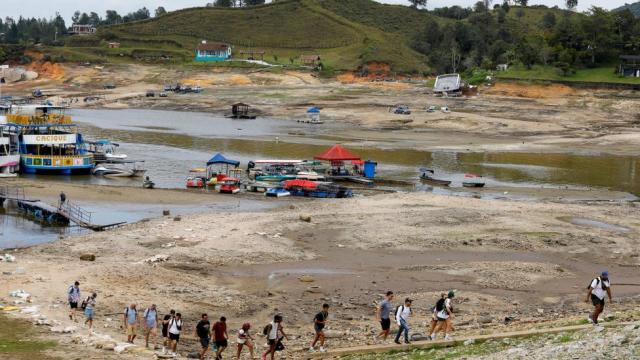As a result of a severe drought exacerbated by the El Niño climate phenomenon, approximately ten million residents of Bogota, Colombia, are compelled to ration water. This crisis has plunged reservoir levels to their lowest point in decades.
To manage the water scarcity, authorities have divided the region surrounding the capital into nine zones, each undergoing 24-hour water service shutdowns on a rotating basis. However, hospitals and schools are exempt from these restrictions. Bogota’s mayor has described the situation as dire and emphasizes the critical need for water conservation.
Implemented on Thursday, these restrictions will be reviewed every two weeks as part of the rationing strategy. Mayor Carlos Fernando Galán urged citizens to minimize water usage, stressing the importance of collective efforts to alleviate the crisis.
The drought’s impact is starkly evident in the dwindling levels of Colombia’s reservoirs, particularly the Chuza reservoir, which supplies approximately 70% of Bogota’s water and currently stands at less than 17% capacity—the lowest in four decades.
President Gustavo Petro announced significant measures to safeguard water resources over the next 30 years and cautioned against uncontrolled urban expansion, citing the depletion of natural aquifers by agricultural and construction activities.
Residents are adapting to the scarcity by reducing water consumption. Activities like car washing are now restricted, and individuals like Clara Escobar and Isaac Sandoval are limiting their showers to four minutes or less.
Experts attribute this crisis, at least partially, to the ongoing El Niño phenomenon, which typically elevates global temperatures. Similar water shortages have been observed in Mexico City and Montevideo in recent years. Climate change exacerbates drought conditions, alongside factors such as rapid urbanization and inadequate infrastructure.
The increase in global temperatures, currently at approximately 1.2°C since the onset of the industrial era, is expected to continue without significant reductions in emissions worldwide.

